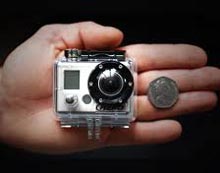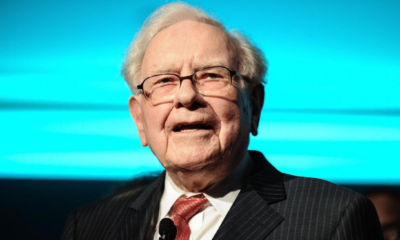Startups
The Worlds Newest Billionaire – GoPro’s Inventor Nick Woodman
When Nick Woodman developed the GoPro camera, he had no idea that the brand would one day make him a billionaire. What was special about this lover of adventure sports that made him a highly successful entrepreneur? Was it just about being lucky, about being at the right place with the right product at the right time, or were there other qualities that went into the making of this new billionaire?
Read on to see how a brilliant mind’s ability to recognize opportunities in ordinary life situations and translate them into great business ideas made all the difference.
Nick Woodman – The New Innovative Billionaire
The GoPro story:

GoPro cameras manufactured by Nick’s company Woodman Labs are very useful gadgets for adventure sports enthusiasts like surfers and skydivers. These high quality video cameras can be worn by the user in several different ways. They have the ability to shoot high quality video footage or still photographs at predefined intervals. The fact that popular nature channels like National Geographic and The Discovery Channel make use of GoPro cameras speaks a lot about the quality, utility and popularity of these products. Felix Baumgartner used several GoPro cameras during his supersonic record-breaking skydive from a height of 39 kilometres.
Foxconn, the manufacturer for several reputed products such as the Sony Playstation and the Apple iPhone recently bought 8.88% stake in Woodman Labs for $200 million. The valuation of Woodman Labs thus works out to about $ 2.25 billion.
Nick being a majority stake holder, owns at least 51% of the company and that means his net worth is at least $ 1.15 billion. Let us take a closer look at the qualities of this new billionaire.
A need becomes an opportunity:
 Nick first got the idea about a camera that could be worn by the user in the late 1990s. However, he began thinking about it more seriously while on a surf trip in Australia with a few friends in 2002. It was a great trip with several memorable moments, but sadly it was impossible to take quality pictures of those wonderful moments.
Nick first got the idea about a camera that could be worn by the user in the late 1990s. However, he began thinking about it more seriously while on a surf trip in Australia with a few friends in 2002. It was a great trip with several memorable moments, but sadly it was impossible to take quality pictures of those wonderful moments.
A friend with a camera on the beach could hope to get a few stills, but from the distance they were a far cry from the type of pictures which would befit those thrilling moments. A wearable camera is the solution, but the only options available in those days were disposable waterproof cameras. Apart from poor results, they were neither comfortable to wear nor easy to use.
That trip finally made Nick translate his idea about the wearable camera into a serious project – GoPro. A chance event allowed Nick to see the need and that paved the way for a great opportunity. Most people on the other hand are not likely to take notice when these opportunities present themselves. You will see this ability of spotting opportunities and generating ideas in action in many other places in Nick’s success story. Take a look at how the brand name GoPro was coined.
Naming the brand:
In the days before GoPro cameras became available, only a professional surfer was able to get quality photographs of themselves in action. These photos were taken by a photographer who went out into the water with the surfer. When amateur surfers experienced great moments, they would often wish from the bottom of their hearts that they could go professional just to have those moments recorded. That gave Nick the idea for the brand name GoPro, something he thought that most surfers would identify with and he was bang on target. The idea that the camera made the wearer feel like a hero gave the model its name – Hero.
Product development:
Initially Hero was only a wrist camera. Nick’s enthusiasm for racing gave the next big idea for further development of the product. A Hero camera strapped to the roll bar of a race car came back with some amazing footage. Nick realized that GoPro should not restrict itself to wrist worn cameras and that it should be possible to wear it in many different ways and be mountable on equipment.
Checkout Nicks new invention, the GoPro Hero3:
Project funding:
Can belts made of shells and beads pay for the starting capital of a billion dollar company? The way Nick Woodman got the idea for generating the starting capital for his company is as amazing as the rest of his story and once again demonstrates his ability of finding opportunities in situations where most people would see nothing of importance.
Behind every successful man is a strong woman. One day while on a surf trip to Bali,Indonesia, Nick’s girlfriend Jill (now his wife) came back to their place wearing a nice looking belt made from shells and beads. It looked much better than the price she paid for it. Nick seized the opportunity and bought 600 of those belts which he later sold for a neat profit in about two months time. That was how the starting capital for GoPro was raised.
Product development:

The first model was a 35 mm film camera capable of taking still pictures. Next came the 10 second digital video camera without audio capability. The 3 mega-pixel cameras which could take both still pictures and video footage with audio and save them to a memory card was a major improvement. From then on it was one innovation after another and today with the right Hero camera you can record professional quality HD video. You get all this in a lightweight product that costs only a few hundred dollars.
One of the things that we should all learn from Nick is the hunger for innovation. He has a long list of innovations in line for his products, and the next step will be a dual Hero camera that can record the action in 3D. It is expected to take the product into an entirely new level and it is likely to hit the market in a few months.
The hunger for success:
Nick said at an interview that he was confident about the success of his business when his first camera model generated a revenue of $ 2000 at his very first trade show. When you are looking for success, you should not think about failure. If you want to learn swimming, you should never think about drowning. This quality is essential to keep fears and doubts in control and stay on the track to success. Nick showed ample evidence of this quality and according to him, the thought of failure never crossed his mind. Sometimes not having any clue about the future is a boon in disguise for the entrepreneur.
A few great shots taken on a GoPro camera:




The story of Nick Woodman, this year’s new billionaire and his brand GoPro reads like a book which demonstrates the key ingredients for success. It shows how the ability to find opportunities in ordinary situations in life together with some great ideas and constant innovation take people to great heights. Luck is always good to have, but as the saying goes, fortune favors the brave.
Get your hands on a GoPro HD Hero2 Outdoor Camera
Article By Joel Brown | Addicted2Success.com
Shift Your Mindset
10 Powerful Traits Every True Thought Leader Possesses
In a world saturated with noise, thought leadership is the quiet power that shifts paradigms.

Thought leadership is more than just having strong opinions. It’s the ability to influence, inspire, and guide others by sharing original insights, innovative ideas, and deep domain expertise. It’s about sparking change, not just talking about it. (more…)
Startups
The Young Man’s Guide to Creativity: 10 Daily Habits to Improve Your Creative Mind
10 daily habits you can put into practice right now to improve your creativity

When I was 22 years old, I became a Top Writer on Medium.
It’s not an easy path. I lived in the Philippines and had never received a penny after writing over 100 digital articles. But I treated it like practice. If I couldn’t get other people to read my work for free, why would they trust me? (more…)
Startups
If You’re Not Reinventing Yourself, You’re Falling Behind! Here’s What To Do
Reinvention is the secret weapon of high performers.

Reinvention is the secret weapon of high performers.
Most careers follow a predictable script. You start at the bottom, climb the ranks, and eventually settle into something resembling stability. But the people who make the biggest impact, the ones who don’t just play the game but change it, break that script. They evolve. They shift. They reinvent. (more…)
Startups
The Silent Killer of Startups: This Might Be Draining Your Profits
If you are careless in managing your inventory, it can lead to a sudden depletion in cash flow

There are several issues in a startup, but if you are really careless in managing your inventory, it can lead to a sudden depletion in cash flow. Old, broken, and misplaced stock wastes space and profits. If inventories and storage aren’t managed properly, it hardly ever works.
-

 Success Advice3 weeks ago
Success Advice3 weeks agoThe One Mindset Shift That Made Me Irreplaceable At Work
-

 Scale Your Business4 weeks ago
Scale Your Business4 weeks agoWhy Smart Entrepreneurs Never Skip This One Business Expense
-

 Did You Know3 weeks ago
Did You Know3 weeks ago7 Surprising Life Lessons Video Games Taught Me That School Never Did
-

 Success Advice3 weeks ago
Success Advice3 weeks agoHow Playing by the Rules Became the Smartest Business Strategy
-

 Success Advice2 weeks ago
Success Advice2 weeks agoHow to Build Trust, Kill Micromanagement, and Lead a Team That Thrives
-

 Scale Your Business2 weeks ago
Scale Your Business2 weeks agoHow to Build a Workplace People Actually Want to Show Up To
-

 Success Advice2 weeks ago
Success Advice2 weeks agoSuccess Isn’t Sexy: 5 Daily Habits That Actually Work
-

 Scale Your Business2 weeks ago
Scale Your Business2 weeks agoHow Smart Entrepreneurs Cut Financial Chaos in Half with One Simple Switch






























9 Comments